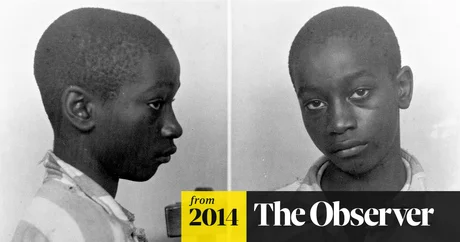George Stinney Jr. (1929–1944) is remembered as the youngest person executed in the United States in the 20th century, and his story has become a powerful symbol of racial injustice in America.
Quick Facts
- Full Name: George Junius Stinney Jr.
- Born: October 21, 1929, in Alcolu, South Carolina
- Died: June 16, 1944 (age 14), Columbia, South Carolina
- Claim to History: Youngest American executed in modern times (by electric chair)
The Case
- In March 1944, two young white girls, Betty June Binnicker (11) and Mary Emma Thames (7), were found dead after going missing in Alcolu, South Carolina.
- George Stinney, a 14-year-old Black boy, was accused of their murder.
- Police claimed he confessed after hours of questioning, though no written record of a confession was ever produced, and no parents or lawyers were present during questioning.
The Trial
- His trial lasted just one day.
- The jury—all white men—deliberated for only 10 minutes before finding him guilty.
- He was sentenced to death by electrocution.
Execution
- On June 16, 1944, George Stinney was executed in Columbia, South Carolina.
- At only 5 feet tall and weighing around 90 pounds, he was so small that he had to sit on a Bible to fit properly in the electric chair.
Posthumous Justice
- For decades, Stinney’s case was cited as a glaring example of racial injustice and the failures of due process in the Jim Crow South.
- In 2014, 70 years after his death, a South Carolina judge vacated his conviction, ruling that he had not received a fair trial and that his rights had been “fundamentally violated.”
Legacy
- George Stinney’s story is now taught in discussions of civil rights, wrongful convictions, and systemic racism.
- It has inspired books, documentaries, and films, such as 83 Days (2018).


